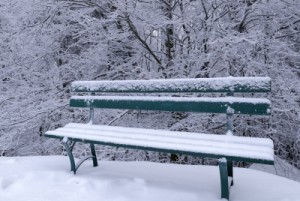During the colder months, temperatures can dip down into the single digits, and this can pose a problem for the unprepared. When temperatures are this low outside, the margin widens for many things to go wrong in and around the house.
Winter safety should be paramount for you and your family, and because of this, here are just a few ways in which you can avoid various types of wintertime emergencies:
Have a backup heating source available
Appliances break, and they are not prejudiced to the time of year in which they do so. This is why you should always have a backup heating plan on hand.
For example, you should always be fully prepared to use your fireplace or space heaters rather than your central heating in case of emergency. Having contingency plans like this will help you if there ever are circumstances that require quick aid.
Install a CO detection device
CO, or carbon monoxide, is a gas that poses a heightened threat during the colder months of the year. Carbon monoxide has no color or odor, but it can be fatal to those who are exposed to it for long periods of time.
Keep the device on at all times, and check the batteries regularly to ensure it’s working properly. Staying safe in your home should be the main priority of any homeowner.
Insulate water pipes along exterior walls
Pipe freezing is a common mishap that homeowners experience during winter. In most cases, pipes will freeze for a short while and thaw once temperatures lighten up a bit.
However, pipes can burst if the water inside of them stays frozen for too long. This is why it’s important to insulate any water pipes that run along the exterior walls in your home.
Most of us don’t know how to do this, so contacting a professional (Plumb Perfect Ltd.) plumber to help get you set up for the winter should be high on the to-do list.
Keep two emergency kits
Emergency kits are essential tools to have on hand, especially during winter. Keep an emergency kit on hand in both your home and car for emergencies at/away from home. Ensure your emergency kit contains some of the basics like:
- Water and food
- Blankets
- Flashlight
- First aid materials
- Plastic bags
- Jumper cables, tire pump, flares, maps, and compass (for the vehicle)
You don’t want to be stuck out in the cold without proper protection.
Keep non-refrigerated, instant foods on hand
Lastly, always keep a storage of instant, non-refrigerated foods that can be eaten immediately on hand. Too many people make the mistake of keeping foods that require preparation on hand in the colder months.
This mistake becomes apparent when the home loses power, or an essential appliance for food preparation breaks.
Above all, you should keep you and your family’s health and safety in mind as the temperatures begin to lower outside. With these tips under your belt, you should be prepared for whatever winter tries to throw your way this season.
Meghan Belnap
Latest posts by Meghan Belnap (see all)
- 4 Successful Ways to Shop Around for Your Family Health Provider - October 3, 2016
- Keep Vital Business Information Safe With These 4 Habits - September 2, 2016
- Plan an Inexpensive Family Night With These 4 Tips - August 26, 2016





The most important thing is to prepare for the emergencies. Suppose to avoid CO gas poisoning, inspect chimney leaking, heating equipment and other CO generating equipment inside home.
I hope everybody will be okay this winter.
Lukman Nulhakiem recently posted…How to Remove Carbon Monoxide From Your Home